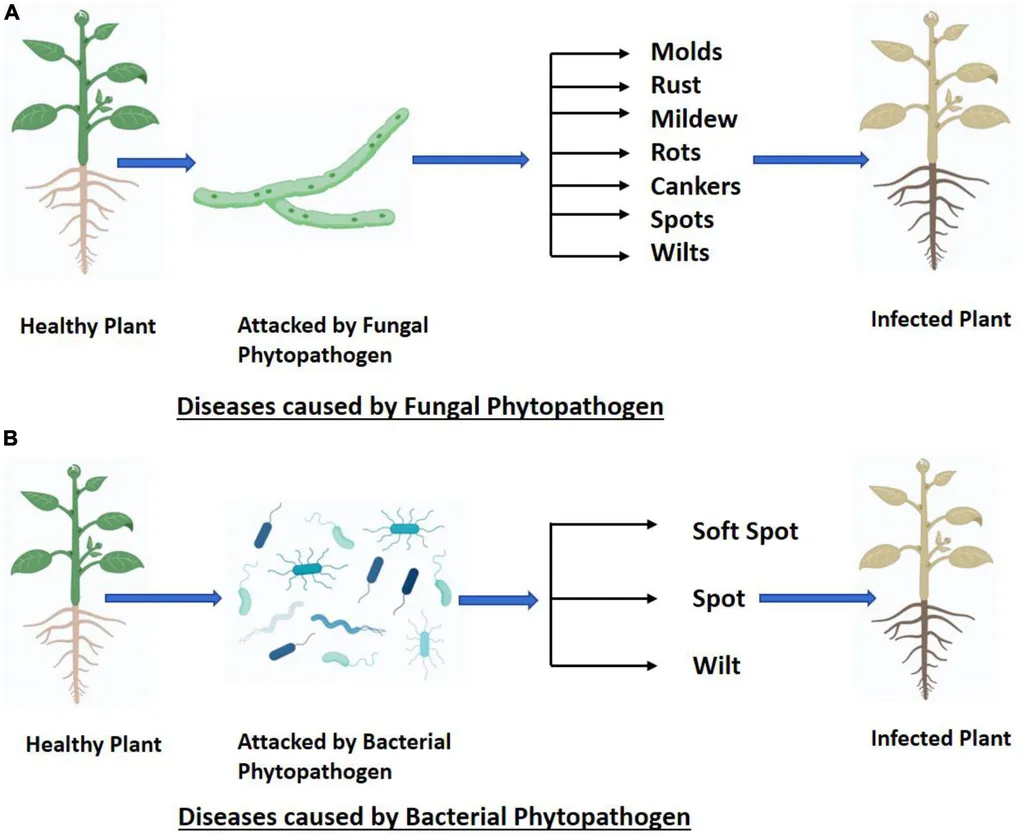In the heart of Yunnan’s Wuliangshan Forest, a microscopic powerhouse has been unearthed, promising to revolutionize agriculture and biotechnology. Meet *Streptomyces olivoreticuli* YNK-FS0020, a strain of bacteria isolated from the rhizosphere soil, which has shown remarkable potential in plant-growth promotion and disease control. This discovery, led by Xin Liu from the School of Agriculture at Yunnan University, could pave the way for innovative solutions in sustainable agriculture and microbial resource utilization.
The strain’s capabilities were put to the test in a series of indoor assays, where it demonstrated its prowess as a biological control agent. It effectively inhibited seven plant pathogens, including the notorious *Fusarium oxysporum* f. sp. *cubense* Tropical Race 4, a significant threat to banana plantations worldwide. “The strain’s ability to combat such a wide range of pathogens is truly remarkable,” said Liu, highlighting the potential of YNK-FS0020 in disease management.
But the strain’s talents don’t stop at pathogen inhibition. It also exhibited phosphorus solubilization, siderophore production, and plant-growth promotion, making it a multifaceted tool for enhancing crop productivity. Genomic analysis revealed a treasure trove of 47 secondary metabolite biosynthetic gene clusters, with 19 showing low similarity or unknown functions. This opens up exciting possibilities for the development of novel compounds with potential applications in agriculture and beyond.
The genomic analysis also annotated genes related to tryptophan-IAA synthesis, phosphate metabolism, and siderophore systems. Metabolomics further detected indole-3-acetic acid and kitasamycin, shedding light on the mechanisms behind the strain’s plant-growth promotion and antimicrobial activities. “These findings provide a comprehensive understanding of the strain’s potential and the mechanisms driving its activities,” Liu explained.
The implications of this research are vast, particularly in the context of sustainable agriculture and biological control. As the world grapples with the challenges of climate change and food security, innovative solutions like YNK-FS0020 could play a pivotal role in shaping the future of agriculture. The strain’s potential in plant-growth promotion and disease control could lead to reduced reliance on chemical fertilizers and pesticides, promoting more sustainable and eco-friendly farming practices.
Moreover, the discovery of novel compounds and gene clusters could open up new avenues in biotechnology and pharmaceuticals. The strain’s unique genetic makeup and metabolic profile make it a valuable resource for the development of new bio-based products and technologies.
Published in the journal *Microorganisms* (translated from the Chinese title), this research marks a significant step forward in our understanding of microbial resources and their potential applications. As we continue to explore the microbial world, discoveries like YNK-FS0020 remind us of the vast untapped potential that lies within, waiting to be harnessed for the benefit of agriculture, biotechnology, and society as a whole.

